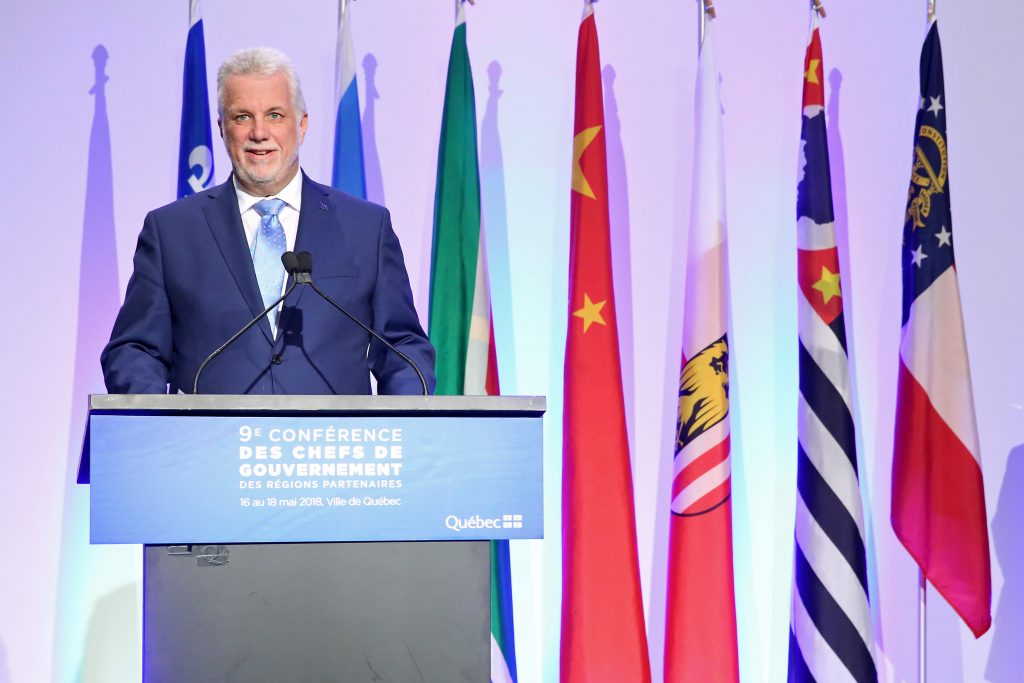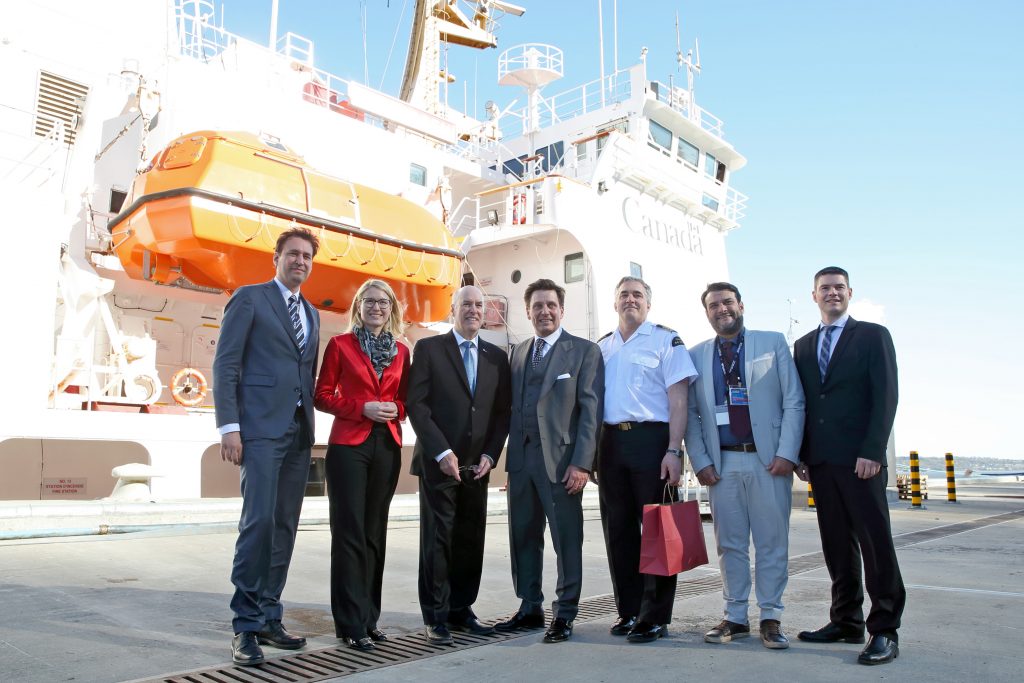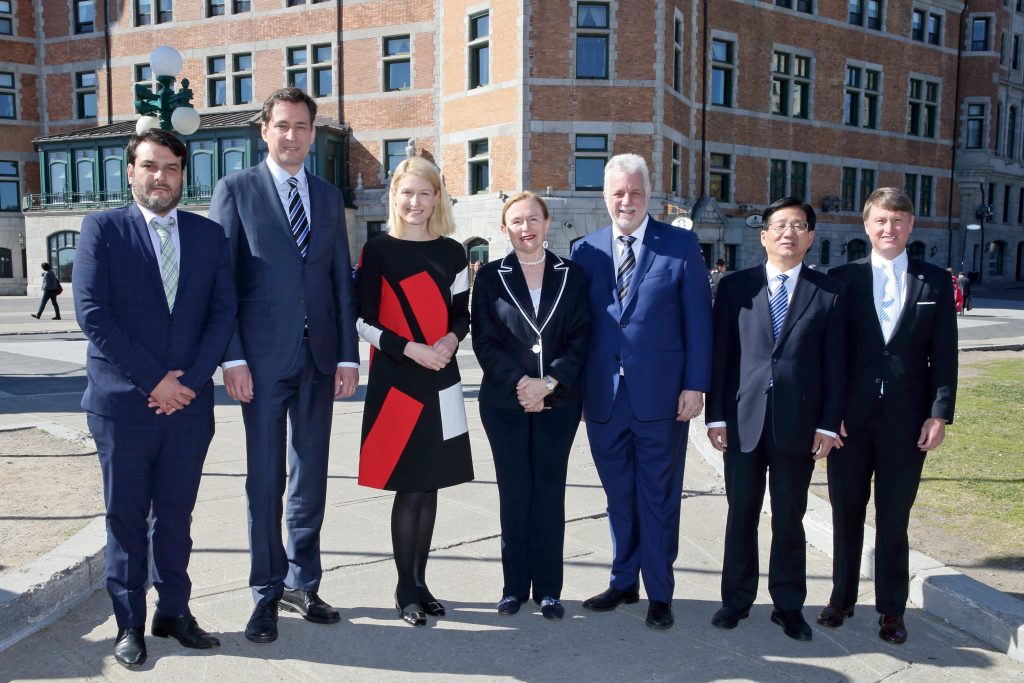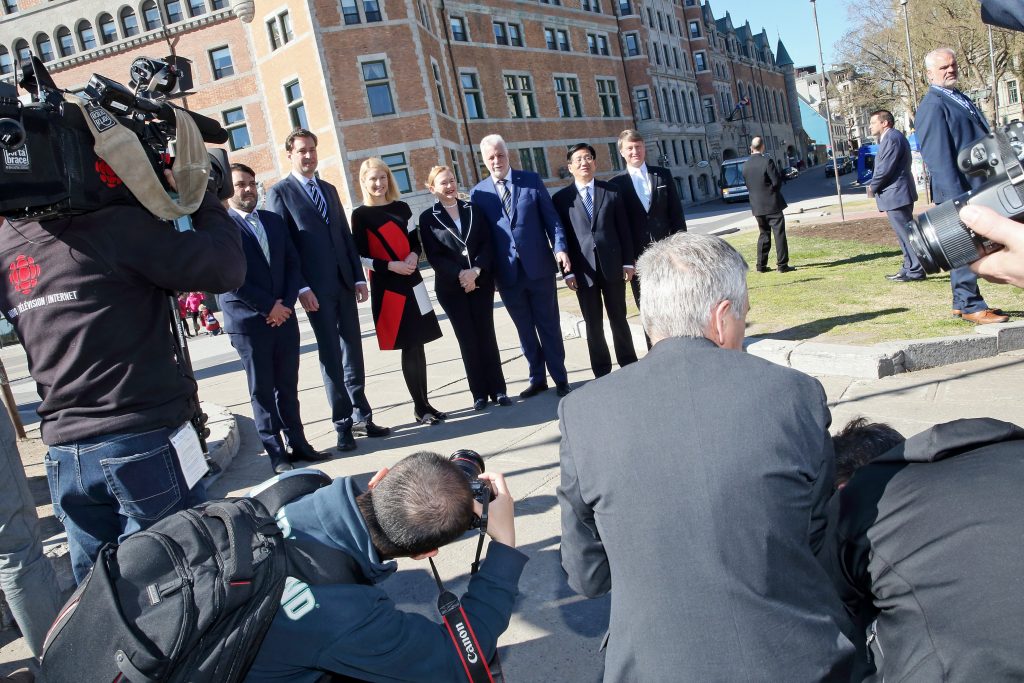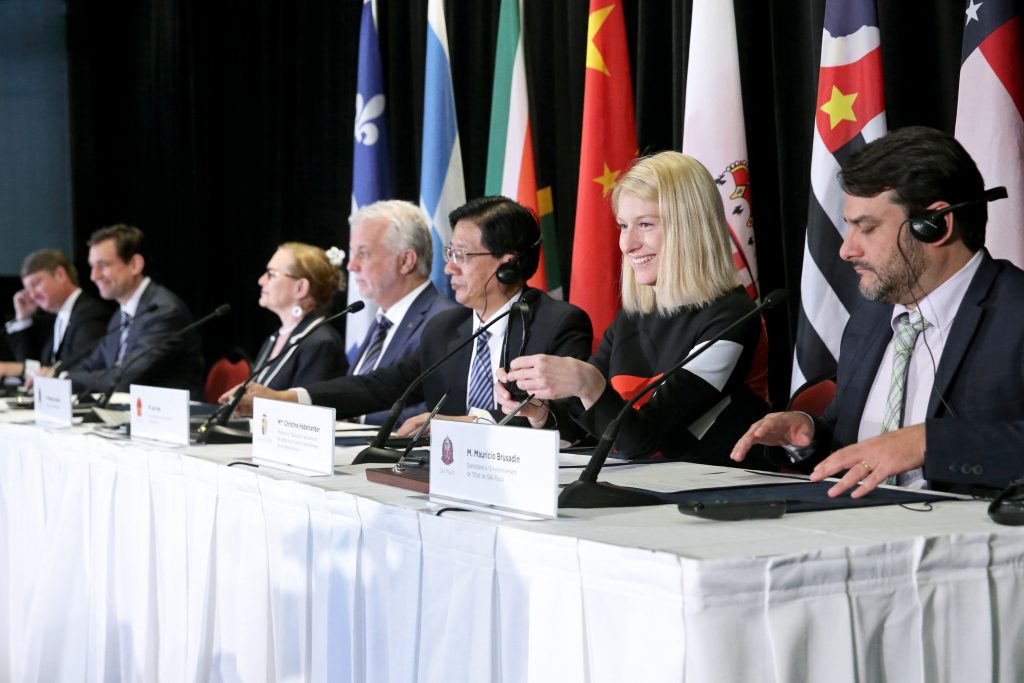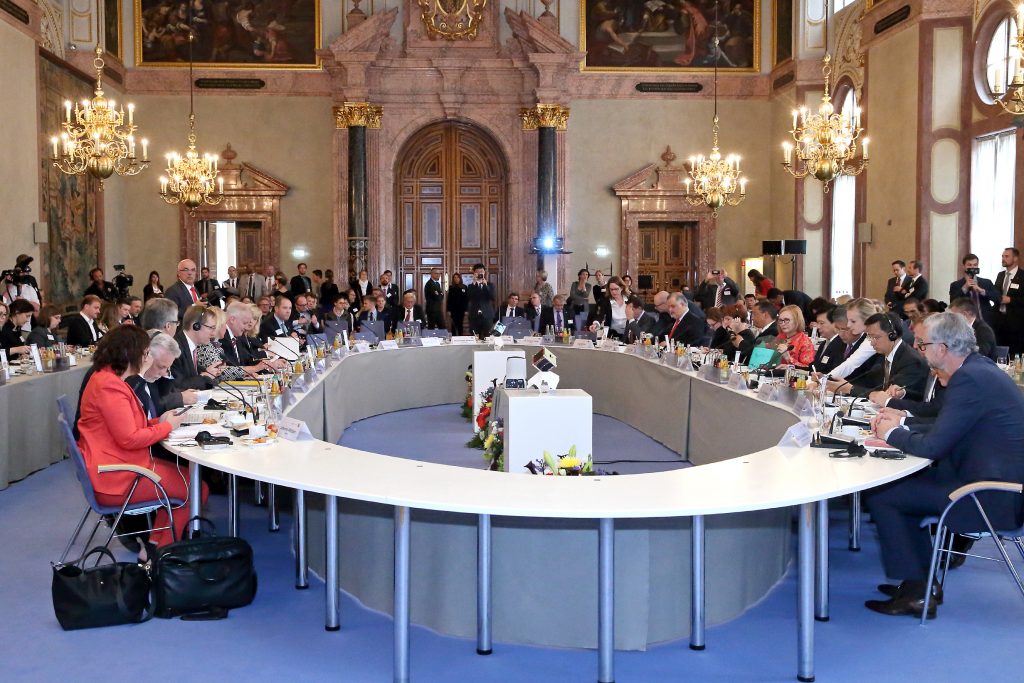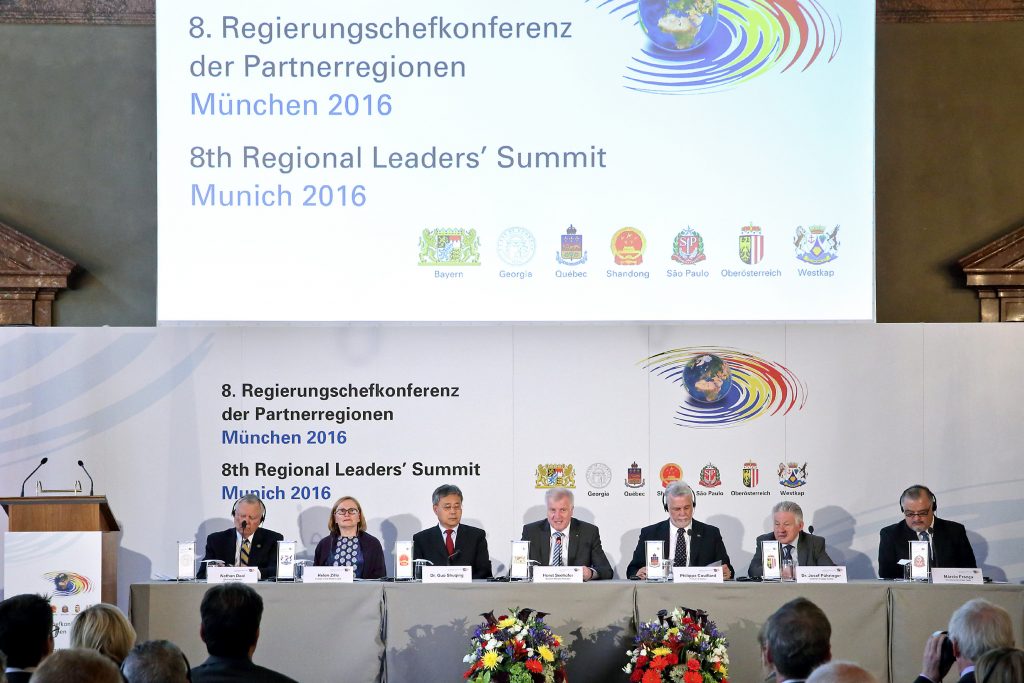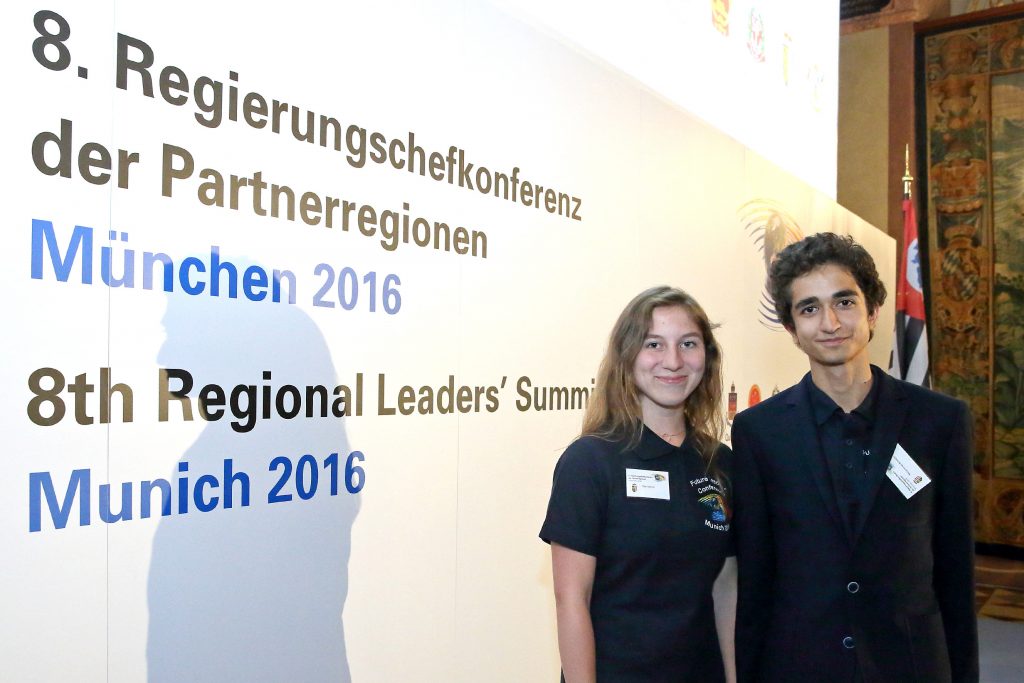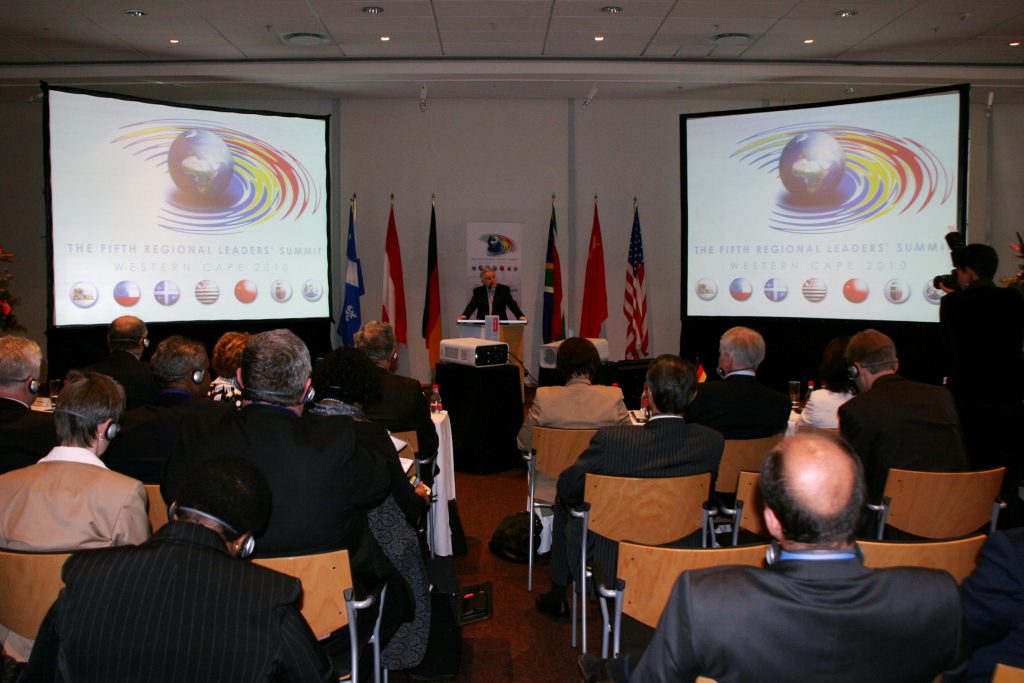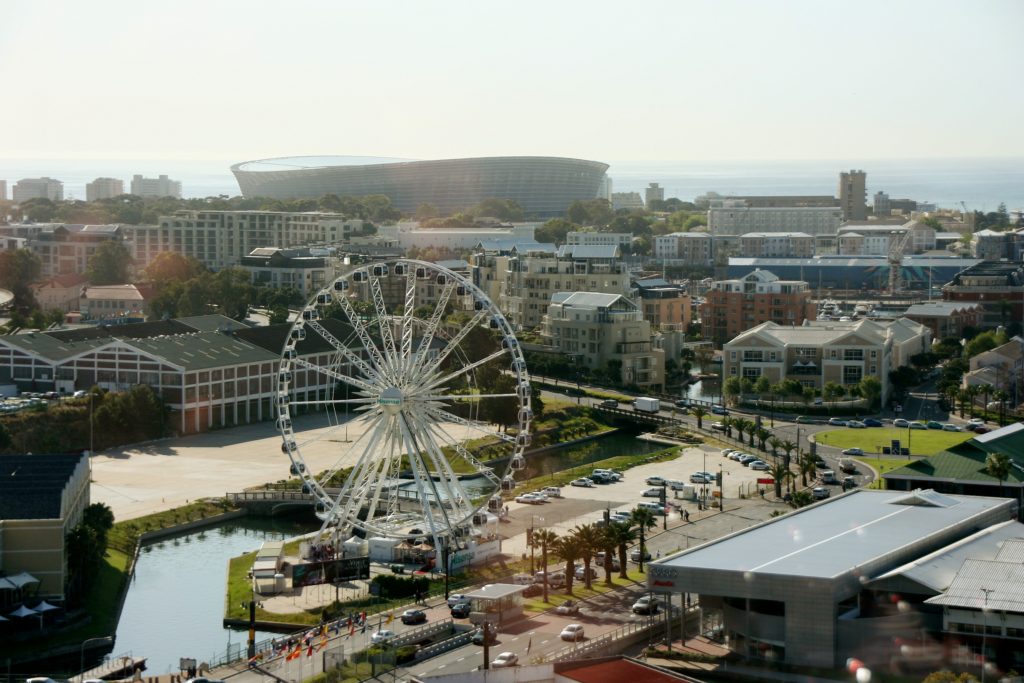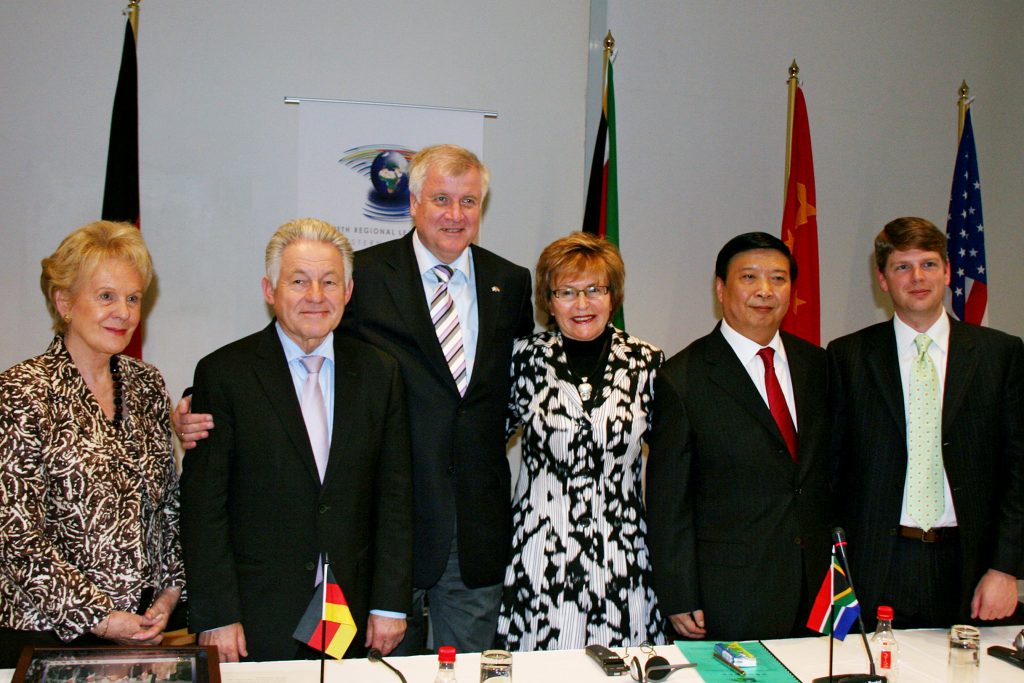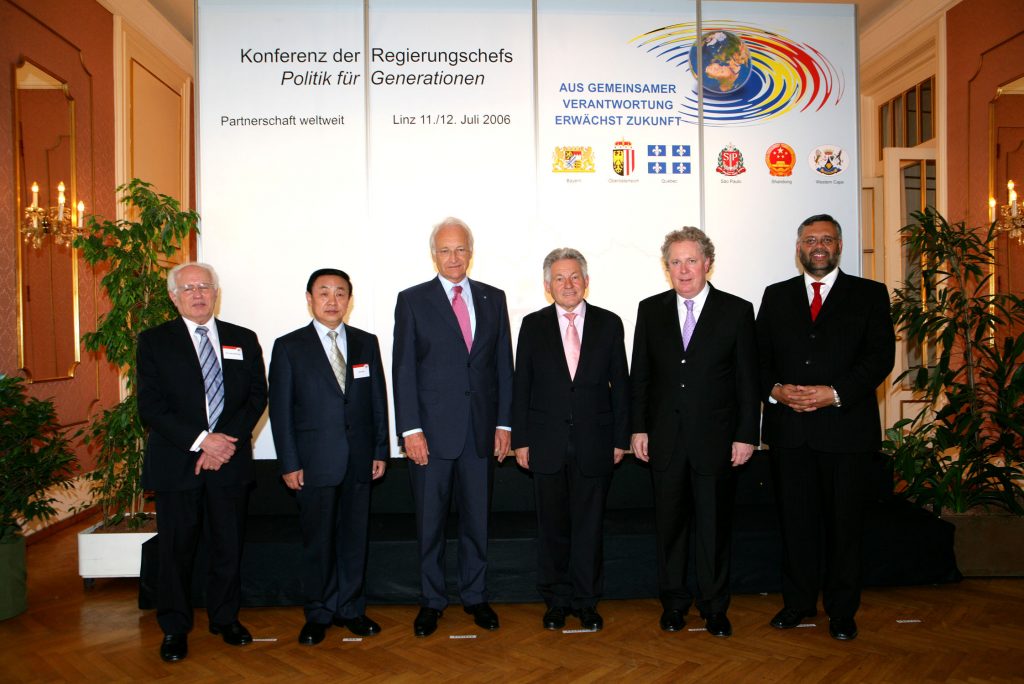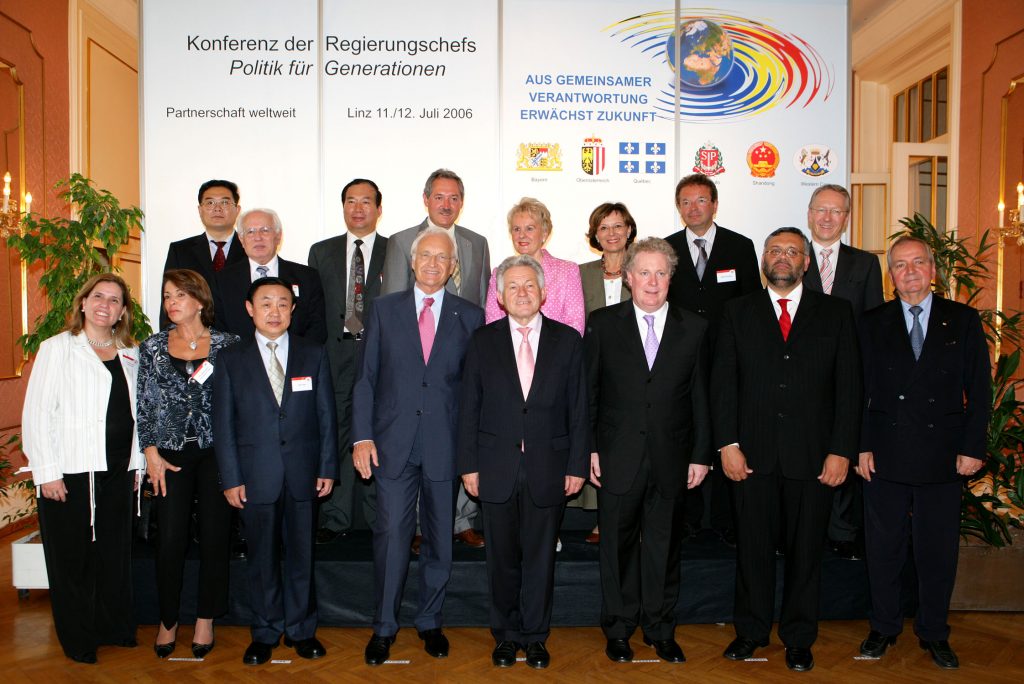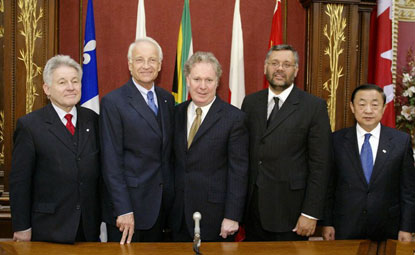9th Summit | Québec
In May 2018, Québec City hosted the ninth Summit, under the following banner: “Energy Transition: Towards a Low-Carbon Economy”. This gathering provided an opportunity to highlight the leading role that regions play in the fight against climate change, as it allowed member regions to share best practices, energy policies and diversified knowledge, to better address energy, economic and environmental.
8th Summit | Bavaria
The 8th Summit, which Bavaria hosted in Munich in July 2016, focused on digitization and innovation, allowing for increased multilateral collaboration in research and innovation. Three further multilateral research projects were added to the list: the RLS-Expert Dialogue on Digitization, the RLS-Global Aerospace Campus, and RLS-Small Satellites. Regional leaders also had the opportunity to meet with CEOs from multinational companies, as well as with students from each region participating in the Future Leaders’ Conference.
7th Summit | Georgia
The State of Georgia hosted the 7th Regional Leaders Summit in Atlanta, in June 2014. Two key issues were identified. The first one tackled global changes in logistics supply chains, and aimed to foster a cross-regional understanding of related matters. The second issue tackled the use of large-scale events to promote sustainable economic development, with discussions on how to promote economic development through major events and on how to make infrastructure more profitable after these events.
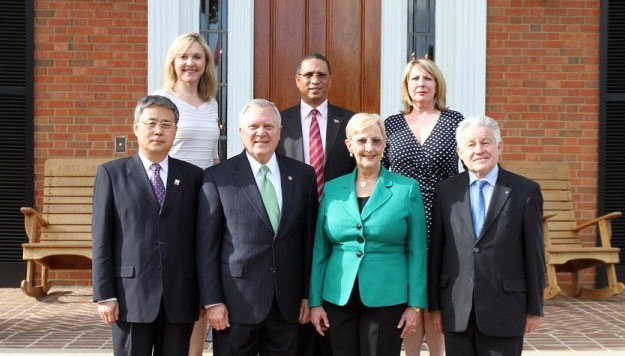
6th Summit | São Paulo
São Paulo hosted the 6th Summit in April 2012. This edition included plenary sessions on “Sustainable Energy and Development: the Role of Sub-National Entities”. This particular issue was subsequently discussed at the United Nations Conference on Sustainable Development (Rio + 20), which took place in Brazil, in June 2012. Those two events enabled regional leaders to come up with concrete actions to address issues of importance for each region. The Energy Network was born out of these meetings.
5th Summit | Western Cape
Cape Town (Western Cape) hosted the 5th Summit in September 2010. The discussions focused on “integrated transport” and “food security”, and resulted in an exchange of practices and analyzes. In addition, experts and representatives from chambers of commerce were invited to share their thoughts with regional leaders, particularly on ways to create new business opportunities.
4th Summit | Shandong
The 4th edition of this biannual meeting was held in Jinan, Shandong, in August 2008. The discussions focused on the efficient use of resources and on health, and workshops featured experts from each partner region. The importance of adopting, developing and promoting new technologies for energy conservation and emission reduction adapted to each region guided these exchanges. For the first time, companies from several regions met and participated in networking activities.
3rd Summit | Upper Austria
Heads of government were invited to Linz, Upper Austria, in July 2006 for the third Summit. The agenda included three plenary sessions devoted to the exchange of ideas and policy initiatives, energy efficiency and renewable energies, as well as education and youth. The need for such exchanges had been highlighted to lay the foundation for international dialogue and collaboration.
2nd Summit | Québec
In December 2004, Quebec hosted the 2nd Regional Leaders Summit. With workshops on “Youth: Developing a “Culture of Succession» and “Economy: Innovation and Technological Development”, the heads of government reaffirmed their desire to strengthen the dialogue over the coming years and to discuss future prospects and ways of collaborating. The aim was to face the challenges of globalization and to encourage synergy between young people as well as between economies from member regions.
1st Summit | Bavaria
With a desire to initiate a dialogue between regions, Bavaria hosted the 1st Regional Leaders Summit in Munich, in January 2002. This 1st exchange resulted in an agreement to develop multilateral cooperation programs in the fields of education, health and professional training, as well as in areas related to economy and technology. A joint declaration of the partner regions for sustainable development was also made.

